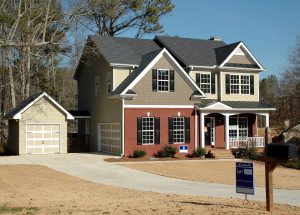 Owning a home is a dream for many, representing a sense of stability, pride, and a place to call your own. However, along with the joys of homeownership come various financial responsibilities. Before taking the leap into this significant investment, it’s crucial to understand the full cost of homeownership. In this blog, we will explore the various expenses associated with owning a home and offer tips to manage them effectively.
Owning a home is a dream for many, representing a sense of stability, pride, and a place to call your own. However, along with the joys of homeownership come various financial responsibilities. Before taking the leap into this significant investment, it’s crucial to understand the full cost of homeownership. In this blog, we will explore the various expenses associated with owning a home and offer tips to manage them effectively.
1. Down Payment
The journey to homeownership typically starts with a down payment. This initial payment, usually a percentage of the total purchase price, can range from 3% to 20% or more, depending on the lender’s requirements and the type of mortgage you choose. Saving for a substantial down payment can help lower your monthly mortgage payments and increase your chances of qualifying for a mortgage.
2. Mortgage Payments
One of the most significant costs of homeownership is the monthly mortgage payment. This payment includes the principal amount borrowed, interest, property taxes, and, in some cases, private mortgage insurance (PMI) if your down payment is less than 20%. It’s crucial to budget for this expense, as it will likely be a part of your life for 15 to 30 years, depending on the mortgage term.
3. Property Taxes
Property taxes are imposed by local governments to fund various public services such as schools, roads, and emergency services. The amount you pay in property taxes depends on the assessed value of your home and the tax rate in your area. It’s essential to research the property tax rates in your prospective neighborhood to estimate this ongoing cost accurately.
4. Homeowners Insurance
Homeowners insurance is a crucial aspect of protecting your investment. It covers damages to your home and belongings from unforeseen events like fires, storms, and theft. The cost of insurance can vary based on factors such as your location, the age of your home, and the coverage amount. Ensure you understand your policy and its coverage limits.
5. Home Maintenance and Repairs
Unlike renting, where maintenance is the landlord’s responsibility, homeowners are accountable for all maintenance and repair costs. From routine tasks like lawn care and HVAC servicing to unexpected repairs such as a leaky roof or a faulty plumbing system, these expenses can add up over time. It’s wise to budget for these costs and set up an emergency fund to cover any unforeseen repairs.
6. Homeowners Association (HOA) Fees
If your home is located within a planned community or a condominium complex, you may be required to pay HOA fees. These fees contribute to maintaining shared amenities and common areas. HOA fees can vary widely depending on the community’s features, so factor them into your budget when considering such properties.
7. Utilities and Home Services
Monthly utility bills, such as electricity, water, gas, and internet, are recurring expenses that come with homeownership. Additionally, consider expenses for home services like pest control, waste disposal, and security systems.
Conclusion
Owning a home brings immense pride and joy, but it’s essential to be aware of the financial responsibilities it entails. The cost of homeownership extends beyond the initial down payment and mortgage payments to include property taxes, insurance, maintenance, and various ongoing expenses. Careful budgeting, emergency funds, and proper financial planning are key to managing the costs effectively.
Before purchasing a home, evaluate your financial readiness, consider your long-term plans, and research the real estate market in your desired area. Homeownership can be a rewarding experience, and with careful planning, you can enjoy the benefits of having a place to call your own while navigating the financial responsibilities with confidence.